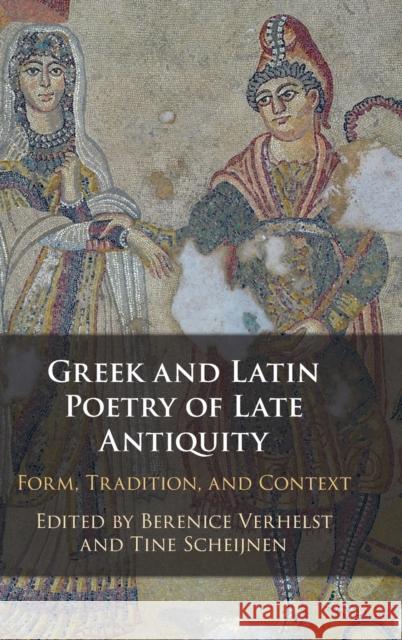Greek and Latin Poetry of Late Antiquity: Form, Tradition, and Context » książka
topmenu
Greek and Latin Poetry of Late Antiquity: Form, Tradition, and Context
ISBN-13: 9781316516058 / Angielski / Twarda / 2022 / 300 str.
Greek and Latin Poetry of Late Antiquity: Form, Tradition, and Context
ISBN-13: 9781316516058 / Angielski / Twarda / 2022 / 300 str.
cena 366,01
(netto: 348,58 VAT: 5%)
Najniższa cena z 30 dni: 363,06
(netto: 348,58 VAT: 5%)
Najniższa cena z 30 dni: 363,06
Termin realizacji zamówienia:
ok. 22 dni roboczych
Bez gwarancji dostawy przed świętami
ok. 22 dni roboczych
Bez gwarancji dostawy przed świętami
Darmowa dostawa!
Promotes a bilingual (Latin/Greek) focus to shed new light on the poetics and aesthetics of late antique poetry.











